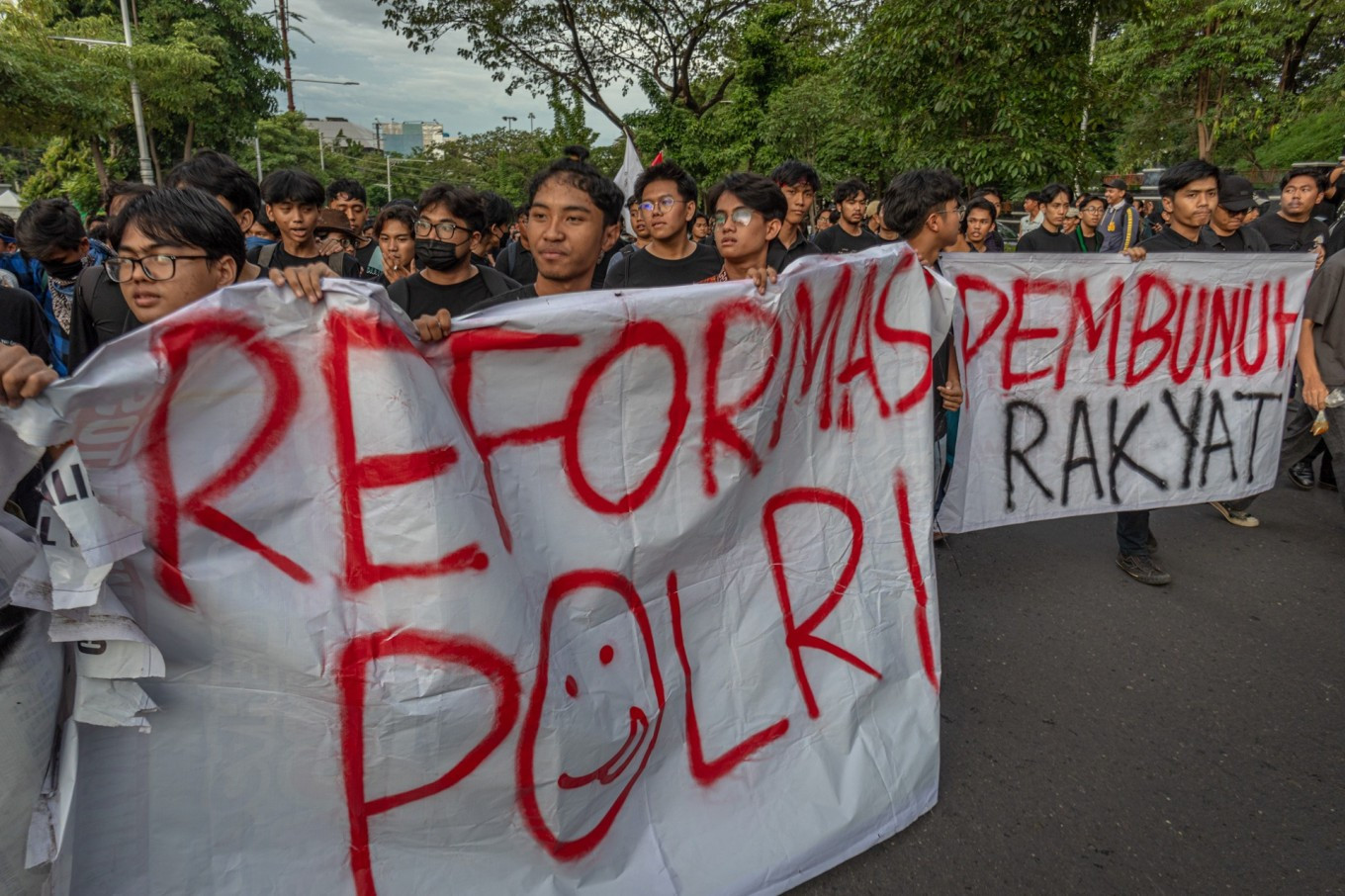Popular Reads
Top Results
Can't find what you're looking for?
View all search resultsPopular Reads
Top Results
Can't find what you're looking for?
View all search resultsPolice reform revisited
It is safe to say that the incoming police reform is no more than a reactionary policy, rather than a genuine intention to bring about change.
Change text size
Gift Premium Articles
to Anyone
W
e welcome the police reform agenda recently announced by both President Prabowo Subianto and National Police chief Gen. Listyo Sigit Prabowo. However, without understanding the circumstances behind the push for reform, we will end up taking the plan for granted and repeating the historical mistake made nearly 30 years ago.
Back in 1998 the nation initiated security reforms aimed at creating a "civilian" police force separate from the military. History shows, however, the reforms begot a powerful entity, which has avoided accountability for its failure to fulfill its pledge to serve and protect the people.
Over the past decade, the police have consistently ranked among the least performing state institutions in opinion surveys, due to frequent cases of corruption, abuse of power and partiality in political contests. The police have been infamously known for their excessive use of force, including in the cyber realm, in their attempt to maintain law and order.
As some observers contend, the National Police have merely emulated the military’s power during the New Order era. The force is now so powerful and influential that cynics argue the police have effectively built an NKRI, the Police State of Indonesia, rather than the Unitary State Indonesia as it is meant to be.
The Aug. 25-29 demonstrations provided yet more evidence of how the culture of violence has become deeply rooted and inculcated in the police institution. Not only did the police resort to violence to quell the aspirations of the young protestors who were questioning the morality of the political establishment. The police also weaponized the law to silence critics by arresting them for alleged incitement and spread hatred against the government.
The fresh demand for police reform arose following a tumultuous week that began with public anger over a rise in lawmakers’ housing allowances, occurring while millions faced job losses and reduced purchasing power. The focus then sharply shifted to the police after an online motorcycle transportation driver was tragically run over by a police tactical vehicle.
It is safe to say that the upcoming police reform is no more than a reactionary policy, rather than a genuine intention to bring about change. It might have not been tabled had the fatal incident not occurred and subsequent protests, manifested among other initiatives by the 17+8 People’s Demands, ensued. Public pressure had always been there but went unheeded by both the police and the political elites who benefited from the powerful institution.
The latest call for reform came from President Prabowo after a meeting with interfaith group the National Conscience Movement (GNB). To fulfill his promise, Prabowo named a retired police general a special advisor on police reform and set up an ad hoc, independent police reform commission, whose personnel and job descriptions have not been officially announced.
Police chief Listyo, whose leadership has been further questioned following the August protests, responded with his establishment of the Reform Transformation Team, which consists of 52 high-ranking and middle-ranking officers, plus advisors from civil society.
Prabowo’s close aide Sufmi Dasco Ahmad, who is also a deputy House of Representatives speaker, and Listyo have argued that the internal police team will complement the commission formed by the President in their efforts to formulate institutional reforms. This, however, fails to allay speculation about a rivalry between the two, given the mounting public pressure on Prabowo to dismiss Listyo in the wake of the recent protests.
To prevent any perception of dualism or insubordination, President Prabowo must declare the independent commission the leading authority for police reform, assigning the internal police team a supporting role. As the direct superior of the National Police chief, Prabowo should then instruct Listyo to strictly follow the commission's reform directives.
Entrusting any reform initiative solely to the object of that reform risks conflicts of interest and undermines credibility. Independence is particularly paramount, as radical changes may be necessary to restore public trust in the police.











